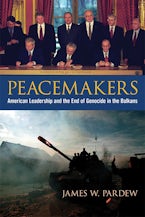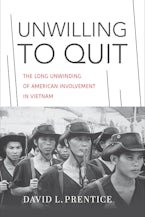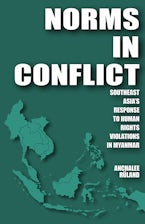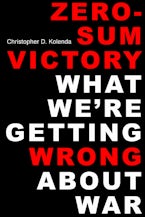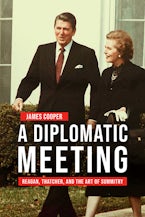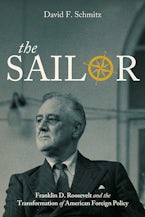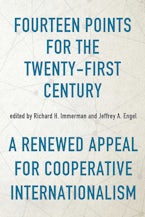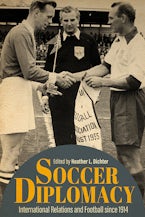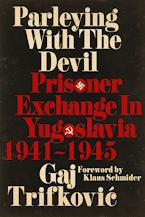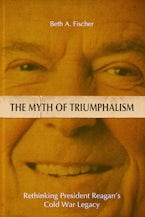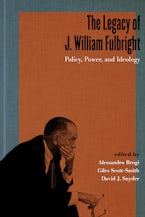Americans can be glad Ambassador James Pardew was, as he describes it in this insightful book, 'drawn to the Balkans.' As readers will discover here, Jim Pardew contributed repeatedly and consequentially to the causes of peace and justice in what was once a much more violent part of Europe. This is also an important study of how and when to use all the tools of statecraft available to accomplish the mission. And the lessons Jim learned, clearly catalogued at the end, are as compelling as the story of his diplomacy.
~Marc Grossman, former Under Secretary of State for Political Affairs
Soldier-diplomat James Pardew skillfully employs the tools of memoirist and historian to construct an engaging account of America's vital role in the Balkan Wars of 1995-2008. This richly detailed and highly significant book recounts in immensely readable prose a major success story in American diplomacy.
~George C. Herring, author of The American Century and Beyond: U.S. Foreign Relations, 1893-2014.
Ambassador Pardew's memoir is a fascinating narrative and an important assessment of humanitarian intervention. Its recommendations on activist diplomacy, the relationship of force and diplomacy, and the importance of European stability for US foreign policy are a valuable guide for public officials and international citizens today.
~David L. Anderson, California State University, Monterey Bay
For many years an important figure in US policy toward the Balkans, Ambassador Pardew, provides an insightful insider account of Washington's approach toward that troubled part of the world that will be of interest to scholars and the general public alike. The shrewd and thoughtful descriptions he provides of important American and international players in the Balkans diplomatic game are particularly valuable.
~Louis Sell, author of Slobodan Milosevic and the Destruction of Yugoslavia, and From Washington to Moscow: US-Soviet Relations and the Collapse of the USSR
If the Trump administration is to steer US foreign policy in a way that can insure American leadership in a difficult and dangerous world, it ought to consult a recent book by former U.S. Ambassador and retired U.S. Army Colonel, James W. Pardew. Peacemakers [is] a much detailed history and informed analysis of how U.S diplomacy helped transform the broken post-Cold War Yugoslavia into separate nations that today know Democracy, peace and economic progress.
~World Affairs Notebook
Peacemakers is an important book. In a time when our world is suffering, once again, from too much 'us' versus 'them' thinking, we would all do well to remember that peace and reconciliation are possible.
~President Bill Clinton
He provides a compelling, detailed account of the diplomatic give-and-take with wily Balkan leaders (none more so than Serbian President Slobodan Milosevic), debates among Western negotiators, and the crosscutting pressures from Brussels and Washington.... He makes a strong case that U.S. diplomacy ended the Bosnian genocide and prevented further bloodshed.
~Foreign Affairs
The narrative, grounded in historical context, includes lengthy quotations of conversations with Albanian and Serbian leaders—notably Slobodan Milosevic. The engagements with various figures in the conflicts offer greater immediacy to the familiar history of Balkan wars but does not contradict the known record.
~Choice
It made me realize how little we know as lay people about what actually goes into negotiations and then into the last signature on a treaty—and then, of course, into decisions about who enforces a treaty and how. Seeing backstage to some of the administration Ambassador Pardew participated in is fascinating.
~Elizabeth Kostova, author of The Historian and The ShadMackow Land
Pardew's memoir provides a unique vantage point from which to observe the United States' role in the wars and the nation-building in the former Yugoslavia. His memoir, well-written and rich in detail, is a timely and welcome addition to other works by U.S. policymakers and diplomats who were present at the creation of American policy toward the former Yugoslavia. Pardew's memoir is a timely reminder that the U.S. national interest and the interests of the people in the region would best be served by democratic communities based not on religion or ethnicity, but on shared values and equal opportunities for all. This assessment has new urgency today.
~Passport
It is, without a doubt, an excellent book about the true 'art of the deal,' which relies on nuance, patience, and, above all, humility... Pardew knows and explicitly says that true leadership in the world requires 'relationships that are based on positive expectations, trust, and respect' (p. 339). It is a shame that many current American policymakers clearly do not agree.
~Patrice McMahon, Humanities and Social Sciences Online
